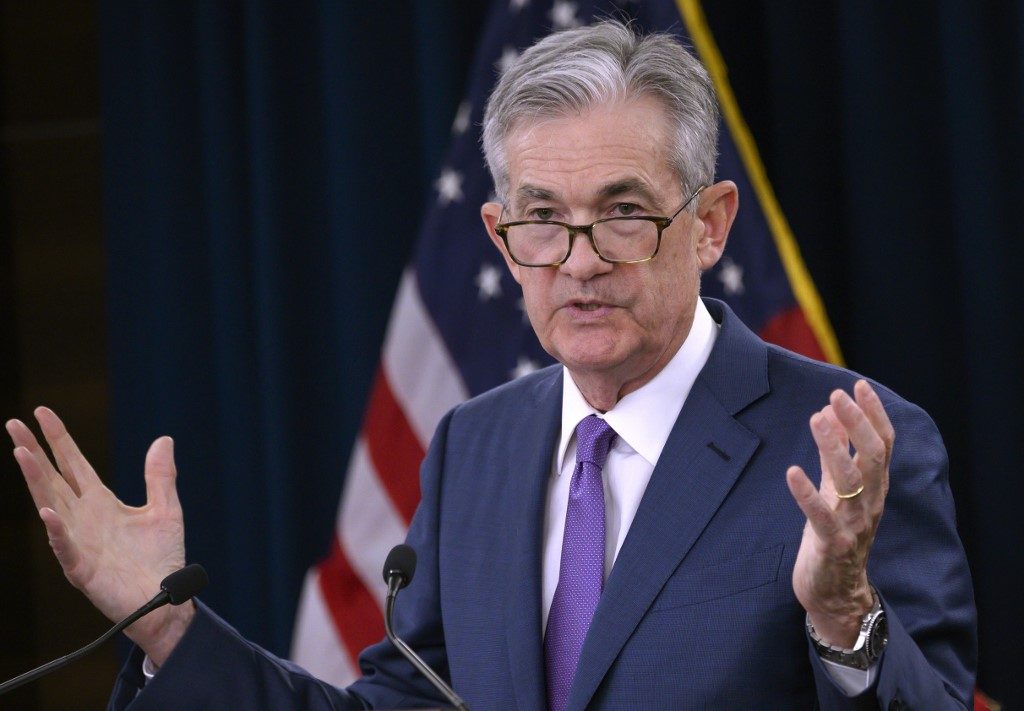SUMMARY
This is AI generated summarization, which may have errors. For context, always refer to the full article.

WASHINGTON, USA – Crisis spending measures to confront the coronavirus pandemic are costly but worth the risk if they prevent even worse economic damage, United States Federal Reserve Chair Jerome Powell said on Wednesday, May 13.
As the shutdowns drag on, they could cause “lasting damage” to the US economy and more policies may be needed to deal with that risk, including spending beyond the nearly $3 trillion already approved by Congress, he warned.
“Additional fiscal support could be costly, but worth it if it helps avoid long-term economic damage and leaves us with a stronger recovery,” Powell said in a speech delivered remotely to the Peterson Institute for International Economics.
“This trade-off is one for our elected representatives, who wield powers of taxation and spending.”
The United States has suffered over 82,000 deaths and more than 21 million job losses in less than two months, erasing all of the job gains of the past decade, with unemployment shooting up to 14.7% in April.
The US central bank has also rushed out a host of measures to lend to companies of all sizes, pumping liquidity into the financial system and easing regulations so banks can lend.
Powell said even more steps may be required and the Fed “will continue to use our tools to their fullest until the crisis has passed and the economic recovery is well underway.”
However, he cautioned that the Fed only “has lending powers, not spending powers,” once again hinting that Congress should not be reluctant to find more ways to shore up the world’s largest economy against the longer-term issues raised by the widespread shutdowns.
Lasting economic damage
Amid the uncertainty about how long the shutdowns will last and when confidence will be restored, many companies and small businesses may not survive, and the pain has hit lower-income households the hardest, with almost half of those making less than $40,000 a year losing a job in recent weeks.
“It’s more-recent hires and lower-paid people who are bearing the brunt of this, although people are suffering all across the income spectrum,” Powell said.
“The coronavirus has left a devastating human and economic toll in its wake,” he said, warning that a deep, long recession “can leave behind lasting damage to the productive capacity of the economy.”
The survival of small- and medium-sized firms is especially critical because they “are really the heart of our economy and the heart of job creation,” and waves of bankruptcies can weigh on economic activity for years.
The Fed chief cautioned that “there is a growing sense the recovery will come more slowly than we would like,” but added, “the economy should substantially recover once the virus is under control.”
Unemployment is likely to peak “in the next month or so” and then fall “as we return to more normal levels of economic activity,” Powell said.
However, “it’s also likely to remain well above the levels that we saw earlier this year and all through 2019 and 2018, which were 50-year lows in unemployment.” – Rappler.com
Add a comment
How does this make you feel?
There are no comments yet. Add your comment to start the conversation.